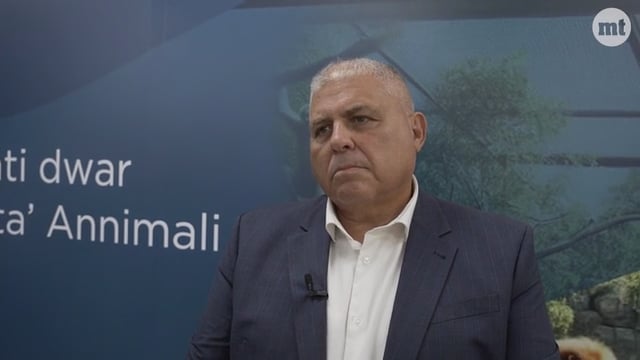[WATCH] Cub petting no longer allowed unless approved by Veterinary Regulation Directorate
Government on Tuesday announced new regulations on the keeping of Animals in Zoos, more than four years after a White Paper had been published


Human interaction with wild animals at zoos will now be banned unless a permit is issued by the Veterinary Regulation Directorate.
The new rules cover wild animals ranging from monkeys, to tigers to dolphins.
Government on Tuesday announced new regulations on the keeping of Animals in Zoos, more than four years after a White Paper had been published.
The new rules, which address unregulated areas in the 2002 law on the keeping of wild animals, which come into force in two months time, will also regulate breeding, zoo enclosures and safety practices at these establishments.
The aim of the new regulations is to protect wild fauna and to conserve biodiversity by providing for the licensing, registration and inspection of zoos in order to strengthen the role of zoos in the conservation of biodiversity; to protect the health and well-being of animals; and to protect the public from these animals.
In a media briefing on Tuesday, ministry officials said the new rules will lead to tighter regulation on the breeding on wild animals in these establishments.
They explained that the law will ban human interaction with these animals, but zoo owners will be allowed to apply for a permit with the Veterinary Regulation Directorate (VRD) to allow such interaction.

Questioned on cub petting, following controversy which erupted when the White Paper was published, they said that tighter breeding and new rules will inevitably lead to a decrease in cub petting.
But given owners can still apply for the special permit, the attraction could still continue at these establishments.
In 2020, government proposed the prohibition of big-cat cub petting at zoos in a White Paper, but relinquished it just 24 hours later following outrage by zookeeper and known Labour adherent Anton Cutajar. The regulations were officially released for public consultation on 9 November and the petting of cubs and touching of wild animals by visitors was expressly banned.
However, a day later, the draft was amended to allow the practice as long as this was carried out under the supervision of the zoo’s vet.
On Tuesday new rules also set out guidelines on breeding, enclosure sizes and food standards for these animals.
The rules
The new regulations come into force within two months when they are published on Tuesday, and existing licenced zoos are being granted a transitional period of one year.
A licence holder shall only hold one zoo licence.
The new rules stipulate conditions for the holding of dangerous animals in line with SL 439.19: Owning and Keeping of Dangerous Animals Regulations, and include guidelines of enclosures, including CCTV.
Changes include rules that zoos must have an appropriate health programme, and the director will issue standards in the Government Gazette regarding on-site animal health facilities.
It will not also be mandatory for zoo owners to report animals’ birth and deaths, with the same zoos carrying out a research and conservation programme.
Breeding will also be regulated, and will be subject to the director’s approval, with measures put in place to ensure there is no inbreeding of species. Owners will also be obliged to keep substances and instruments for the safety of animals and general public.
Public interaction with animals is not allowed, unless in accordance with guidelines to be issued by the director of the VRD.
VRD officers will also be obliged carry out inspections at least once a year, and will be carried out before the issuing or renewing of a zoo licence. The payment to get a new zoo licence will that of €500, while a licence renewal will cost €100.
The new rules state that the zoo owners must contribute to the newly setup Animal Welfare Awareness and Research Fund.
Upon applying for a new zoo licence, owners must contribute a fee of €1,500, and €400 upon renewal.





















